For over five decades John Craven has graced our scenes, with 30 years as the king of Countryfile. As he publishes his memoirs this month, we turn the reporter’s microphone on him for a change.
Where is John Craven from?
John Craven was born and bred in Yorkshire on 16th August 1940.
How did you get into broadcasting?
I had a false start; at 18 I’d been ‘spotted’ by an ITV youth programme because I ran our church magazine, but after only a few appearances I was sacked, because I was too old! So I went into print journalism, joined the BBC staff in Newcastle as a news scriptwriter in 1965 and persuaded the bosses to let me make some films for the regional Look North programme. That was my big break and after a few years I moved to Bristol as a freelance reporter on Points West. The network production centre there made children’s programmes, such as Animal Magic with Johnny Morris and Vision On with Tony Hart, and I auditioned for the presenter role on a new one, a topical show called Search. I got the job and that led to Newsround in 1972.
What advice would you give a young person wanting a career in broadcasting?
These days it is so different from when I set out. Television was quite new and black-and-white with just two channels, no clear career path and no such word as ‘media’. Now there are scores of programme-making outlets on radio and television, media degree courses galore, obvious stepping stones and, on the minus side, a lot more competition. But I’m a great believer in lucky breaks so make the most of any you get, have faith in your talent, be determined and you will make it.
What is your proudest moment?
Apart from becoming a father twice, it was receiving the OBE in the Millennium Honours for services to children’s and rural broadcasting – the two areas that have defined my career.
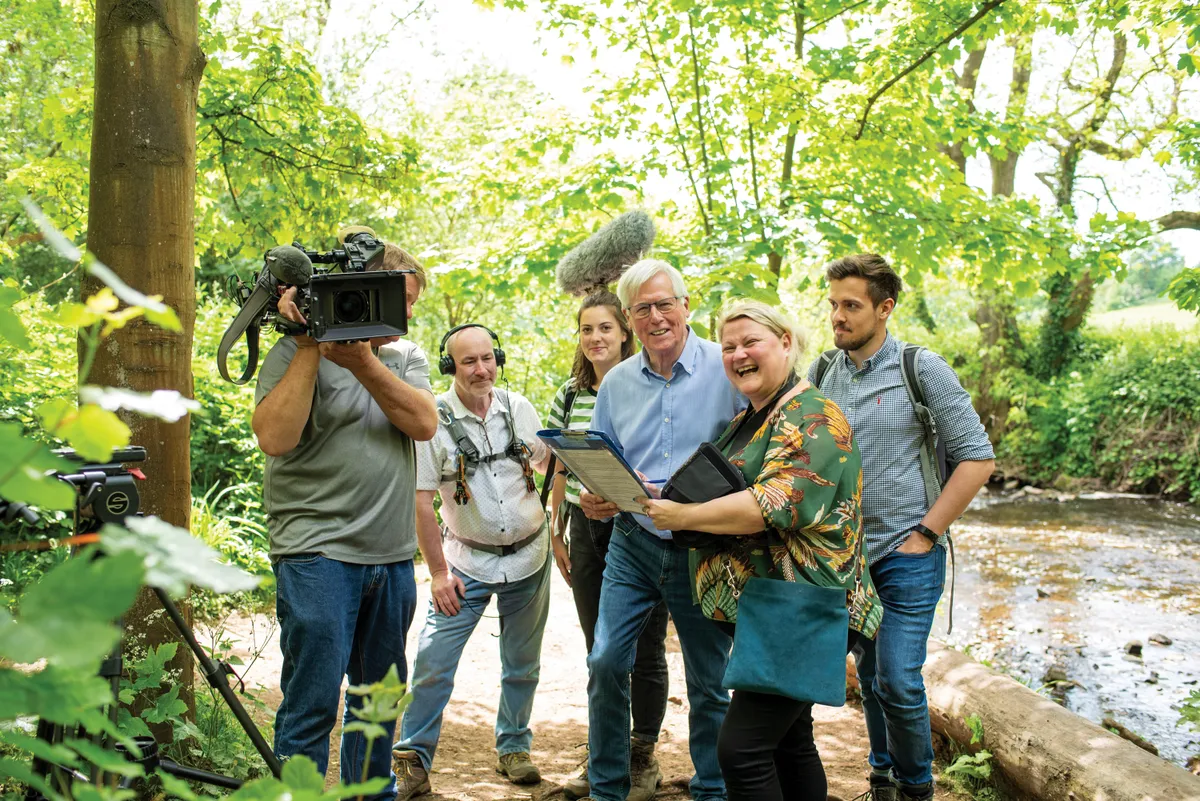
What is the biggest lesson learned in your time as a broadcaster?
Always to be yourself. It’s different, of course, for actors, because they play many parts, but reporters and presenters are soon sniffed out by the audience if they put on an act. I’ve always believed my role to be that of a straightforward storyteller, passing on information in a clear and truthful way. On Newsround I tried to explain things simply without being simplistic and, with an adult slant, it’s been much the same on Countryfile.
If you had chosen another career what would it have been?
The captain of an airliner – what a view from the office window! I was once allowed to sit in the cockpit of a Concorde on a flight to Washington and it was so exhilarating, especially when we broke the sound barrier. The crew told me there were expansion joints along the airframe because Concorde stretched a few inches when it went supersonic.
Where would you most like to live?
I was born and bred in Yorkshire and have lived in the North East, Gloucestershire, Buckinghamshire and Oxfordshire – all places with wonderful countryside – but I’ve always hankered after a house with panoramic sea views. If I were to name my favourite part of rural Britain, it would have to be the Yorkshire Dales where, as a child, I first came face-to-face with nature.
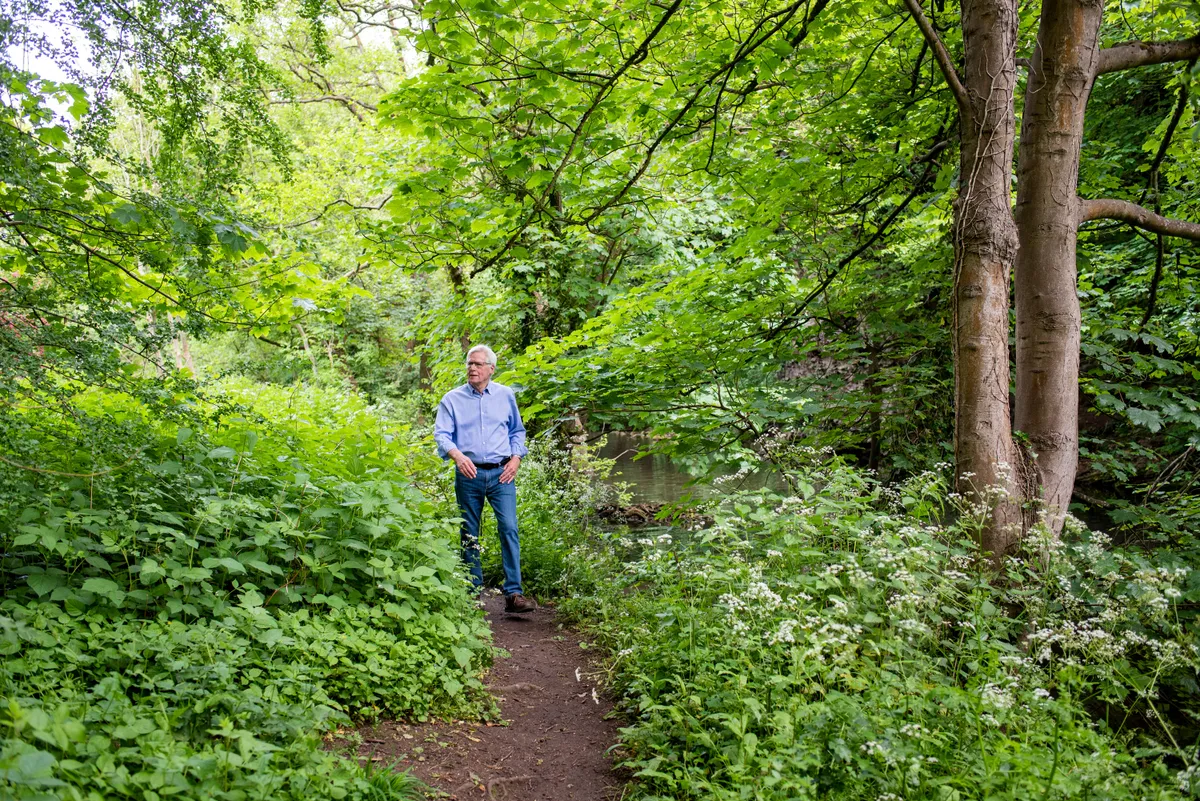
How have you coped with being in the public eye for so long?
It’s been part of the job for more than 50 years and because I’ve always worked on programmes viewers respect, they’re always very pleasant when they approach for a chat, an autograph or a selfie. One of the great joys of being at BBC Countryfile Live every August is to be regarded as a friend by folks I’ve never met before, who come up and tell me how much they love the show. My oddest request for an autograph came when I was filming in Australia. During some time off I was standing alone at the end of a pier, lost in thought, when an expat voice said in my ear: “What are you doing here, John? You’re a long way from Countryfile.”
Which wild animal would you be?
I wouldn’t mind being a red kite, now they’re no longer persecuted. I helped reintroduce the species nearly 30 years ago and when I spot one soaring over my garden, I marvel at the majesty of its flight. Nature’s version of being a pilot.
What has been your most memorable TV experience?
For all the wrong reasons, it was covering the foot-and-mouth crisis in 2001. Our livestock industry was devastated, and so was rural tourism as the countryside faced lockdown. Every Sunday, Countryfile reported live on the epidemic and everywhere I went during those dreadful months there were heartbreaking stories and burning pyres of dead animals. Not only did trading stop but farmers faced a double whammy because many of them relied on their bed-and-breakfast businesses to keep them going, and there were hardly any visitors. Around half a million animals were buried at Great Orton near Carlisle. The site is now Watchtree Nature Reserve, a place of beauty and peace; on the 10th anniversary of that nightmare I was invited to help plant an oak tree there.
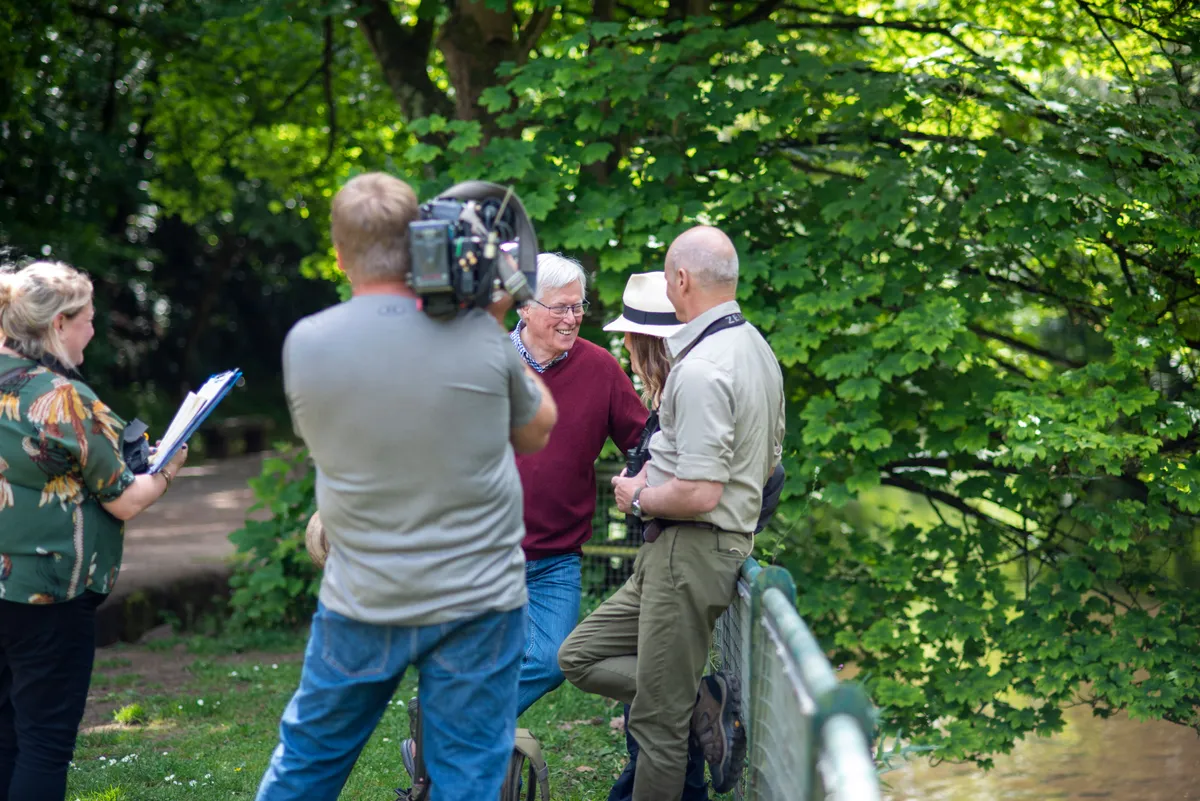
And what has been your most dramatic experience?
Being winched about 15 metres from the rolling deck of a lifeboat into a search-and-rescue helicopter. It happened off the South Wales coast as Countryfile filmed a combined exercise involving the RNLI and the RAF. Though I was assured by some very experienced lifesavers that there was no risk, my heart was in my mouth as the winchman lifted me aloft.
Who, dead or alive, would you have loved to work with?
One of my heroes is Thomas Telford, who made such an impact on our landscape 200 years ago as the builder of canals, roads, bridges, harbours, viaducts and aqueducts – including the ‘stream in the sky’ over the River Dee at Pontcysyllte in Wales. I crossed it on a canal boat for a feature in this magazine and was overawed. What a privilege it would have been to work with him as he travelled the country taking on such pioneering challenges that are still in use today. The son of a Scottish shepherd, his dream was to be a poet, but his legacy is in stone not sonnets.
Which five people would you invite to the perfect dinner party?
I’d invite Charles Darwin; his controversial theories are now mainstream so how would he react to today’s threats to nature and the future of our planet? He’d be a stimulating companion for David Attenborough, who I’ve met only briefly. Also round the table would be Thomas Telford, for reasons already mentioned; Dame Judi Dench, nature-lover and great fun, as I discovered while walking with her along a rural path that Shakespeare’s players once trod, and Stacey Dooley to get a young journalist’s take on things.
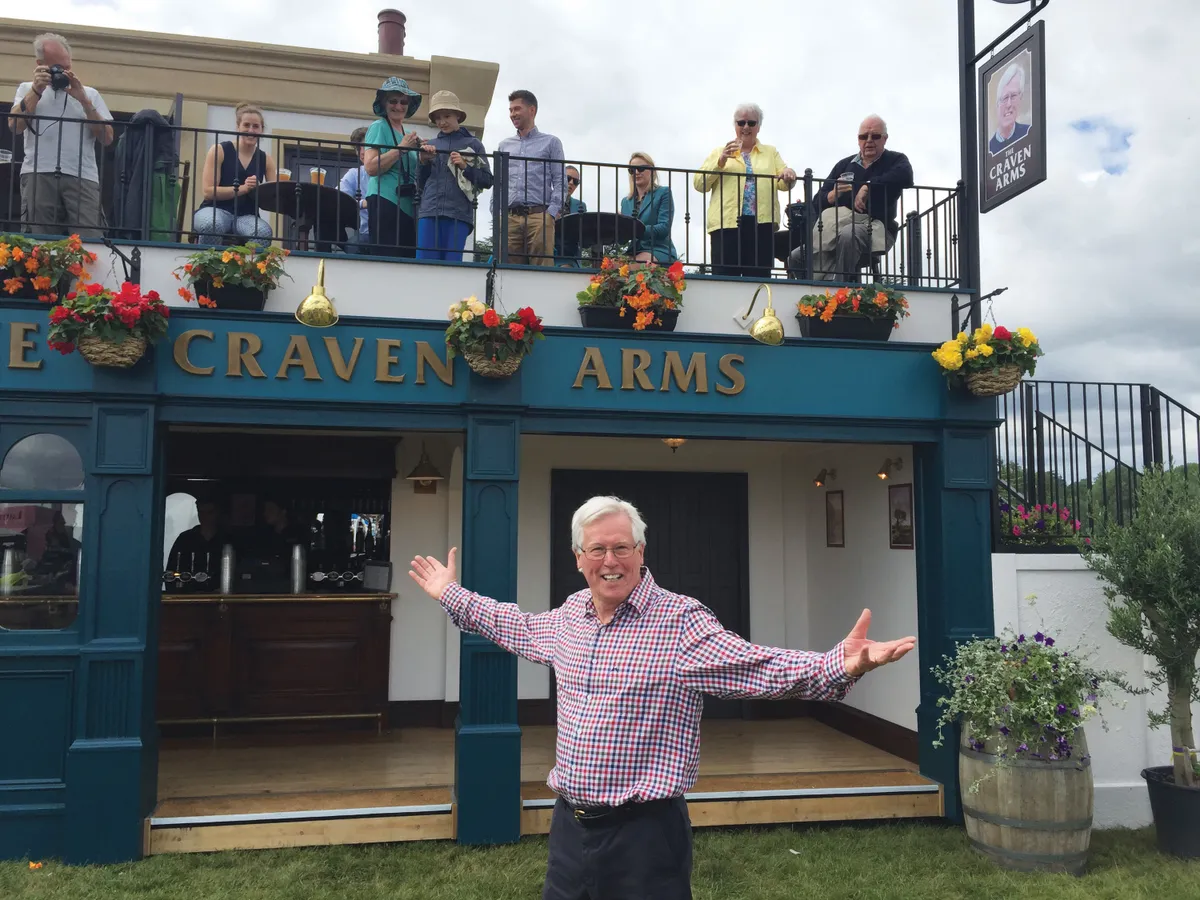
What has been the biggest change to the countryside over the past 30 years?
Visually, what’s changed is the appearance of many new homes on the outskirts of villages (not enough affordable ones, though, to stop young country folk migrating to towns) and the disappearance of many shops, schools, post offices, pubs and bus services. It means rural people have become more socially isolated and in particular that has hit the growing number of pensioners, who live long distances from surgeries and hospitals and maybe don’t have anyone to keep an eye on them.
The rolling landscape is as stunning as ever and farming still covers 70% of the countryside. But more than a third of small farms have disappeared so far this century and many others are struggling to survive. Industrial-scale farming has taken over and tourism finds itself playing a bigger role than ever in keeping the countryside viable.
What’s your biggest worry about the future of our countryside?
No matter what happens over Brexit on 31 October, I worry for the future of food production. It’s vital we step up our level of self-sufficiency (at the moment just 60% of the food on our tables comes from the UK) and improve our exports. Most working farmers are middle-aged to elderly and over the years so many sons and daughters have told me they have no interest in taking over from their parents. So, we’ll need to recruit more young people from non-farming backgrounds if future food demands are to be met. Politicians must face up to the situation or else our nation will be forced to rely increasingly on imports, which could be both risky and costly.
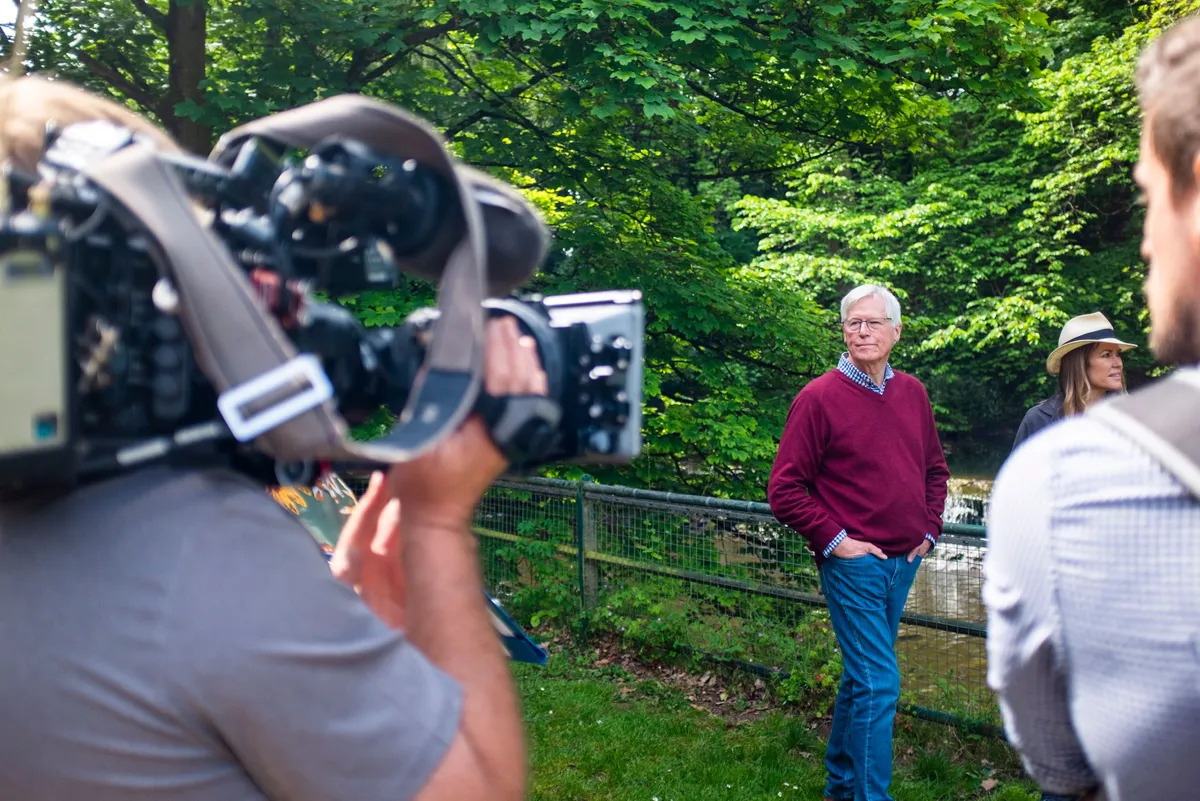
What’s your favourite tipple?
At BBC Countryfile Live there’s a pub named after me – the Craven Arms – and though I’m not a big drinker I’ll be there after a long day downing a pint of local beer. At the show this year I’m also running pub quizzes, which I love. My favourite food, after Yorkshire pudding and a roast (cooked by my wife!), is anything Italian.
Most memorable journey?
It’s the one that has taken me through my career in broadcasting, and I’ve loved it. My 30 years on Countryfile have flown by, as did my 17 on Newsround, and on that journey I’ve worked with amazing, talented people. Hopefully it’s not over yet!
